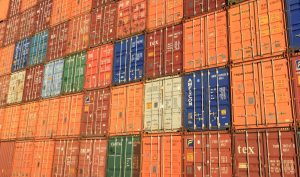Invoice verification and logistics audits are certainly not the sexiest of topics, but they are certainly the key to unlock many challenges.
So what is freight auditing?
It’s the processes performed to ensure that shippers are paying the right amount of money to their logistics providers.
Aren’t carriers obligated to provide error-free invoices?
Yes, they are, but it’s not always that easy for many reasons. Simply put, logistics lacks data standardization. In addition, not only are systems often outdated, but data can be changed along the way and not reported, but logistics pricing can also have many different components.
What are these different components that make logistics pricing and invoicing so difficult?
This is where the explanations get interesting because logistics is different from other types of industries. First, you have freight itself, which can be charged in different ways by weight, including per pound, per kg, and per billable weight (weight conversion applied). It can also be per meter of load, per shipment, per pallet, per container, etc., depending on the mode of transportation.
A fuel surcharge can be added to this, the price of which is based on a percentage. Then there may be ancillary costs and surcharges for waiting time, port congestion, cleaning, extra services, handling charges, extra equipment, dangerous goods surcharges, etc.
This list can be endless. It just goes to show that logistics billing is far more complex than any other industry category. Because logistics is dynamic and each shipment is unique, this translates into a greater margin of error in invoices.
Treasure hunt
Freight auditing is not the most popular task, and many companies overlook it. But with extra effort, this exercise could reveal hidden treasures.
Data harmonization: With the freight audit, all data elements are structured and harmonized so that they match your logic. In addition, the different cost elements used by carriers and the complexity of the data sets provided by them can also be reduced.
A single source for data: The freight audit platform provides information on carrier data, rates, contracts, and logistics costs. In fact, it all goes through one system. No more expense leaks or lack of data visibility.
Clean data entry: If you’re going to bid freight, just run a report to retrieve the data from the freight audit platform and you’ll have a perfect baseline for any procurement event. Save time as well.
Clean data output: Finance will only receive correct billing data and accurate invoices. Payment will then become easier, and finance will spend much less time on logistics. Account coding will be automated.
Savings of 2-6%: Errors come in all forms and sometimes it is just a small error repeated several times or the old rates are applied. Eliminating these errors can lead to significant savings.
Possibility to improve other processes: Thanks to the freight audit, invoicing is easier, logistics does not have to touch invoices anymore and can focus only on exceptions and the execution of tenders, which becomes easier.
On-time payment to the service provider: With the improved processes, carriers can receive their money on time, which is not always the case with non-audit processes. Carriers also have a better understanding of their own billing process.
Hold carriers accountable: During quarterly reviews with carriers, it becomes much easier to show billing errors and recover money in mistakes made and improve weak points based on clear data.
Given these benefits, you can say that freight auditing creates a solid and well-structured foundation of any logistics organization that will be on top of data and data quality without leaking money or wasting time on manual data collection processes. With the logistics industry in the state, it is in today, it is more critical than ever for companies to have an effective audit system in place.





